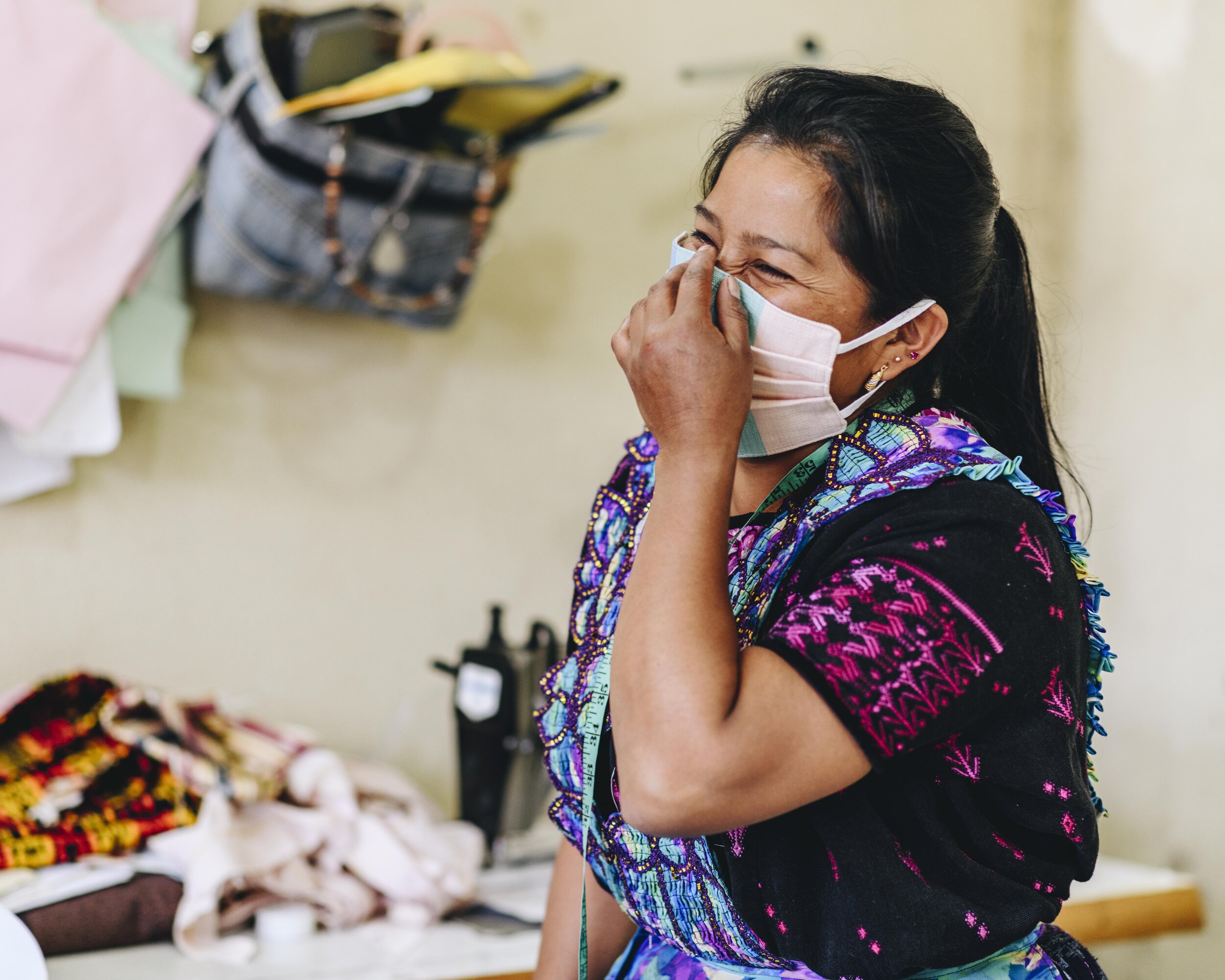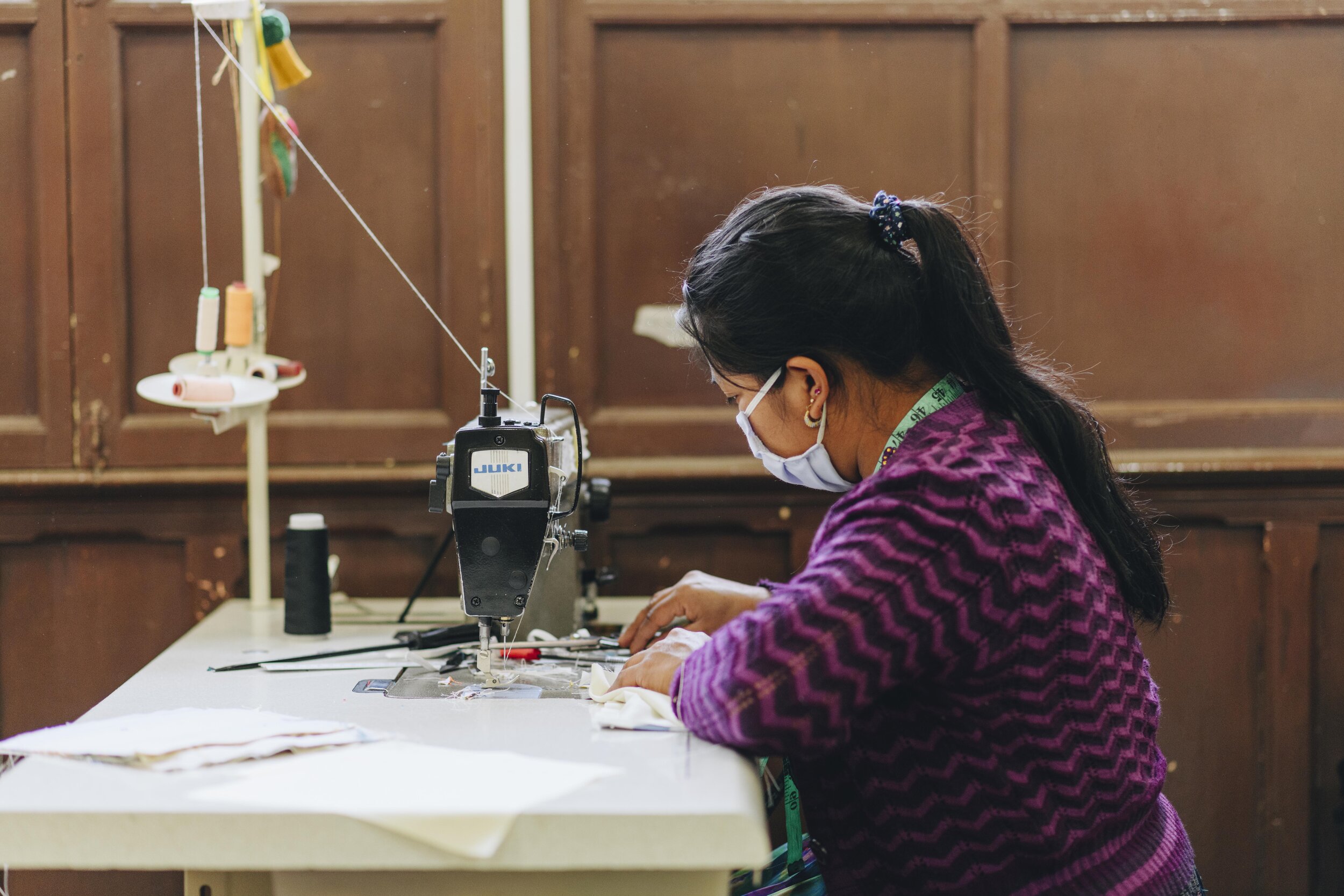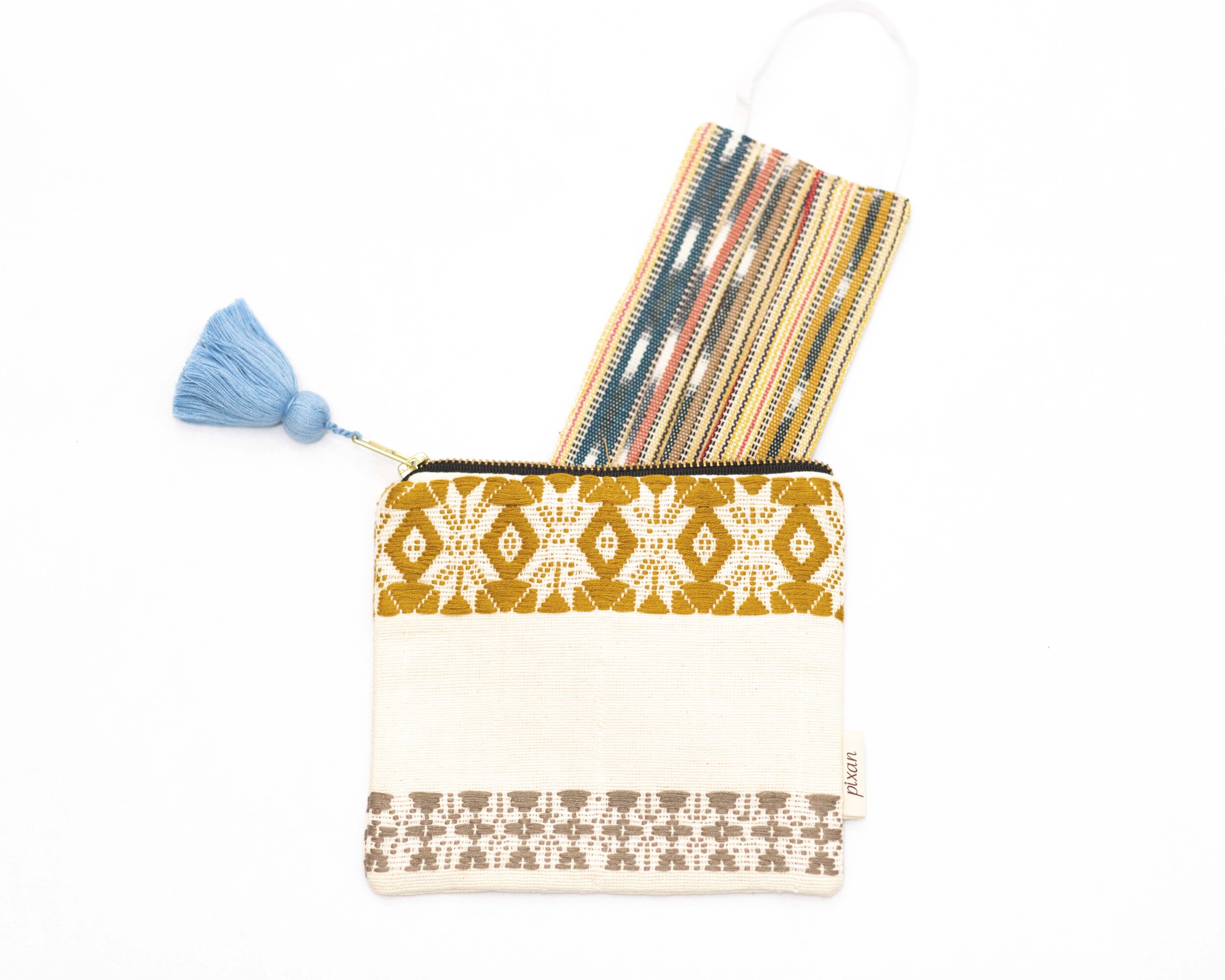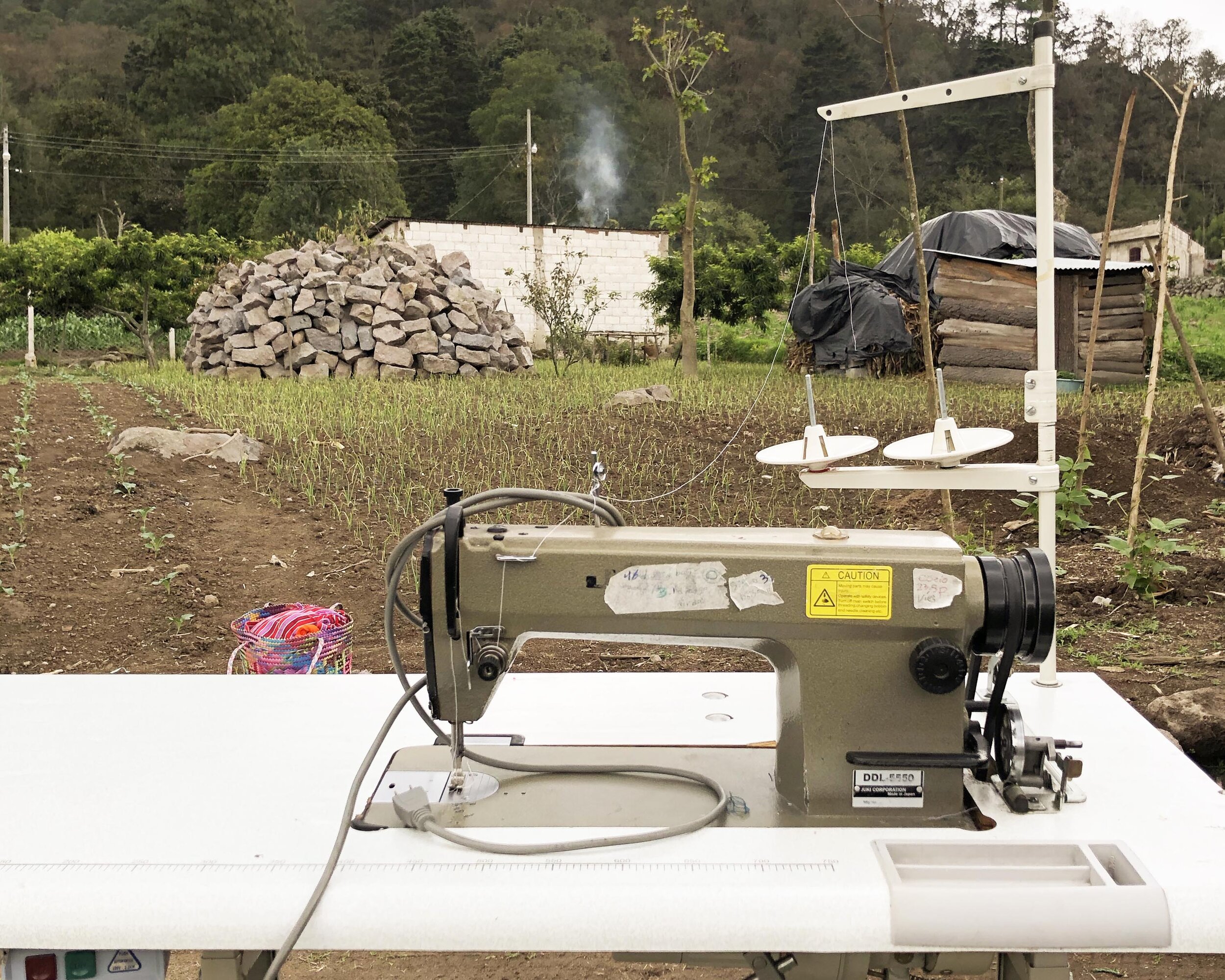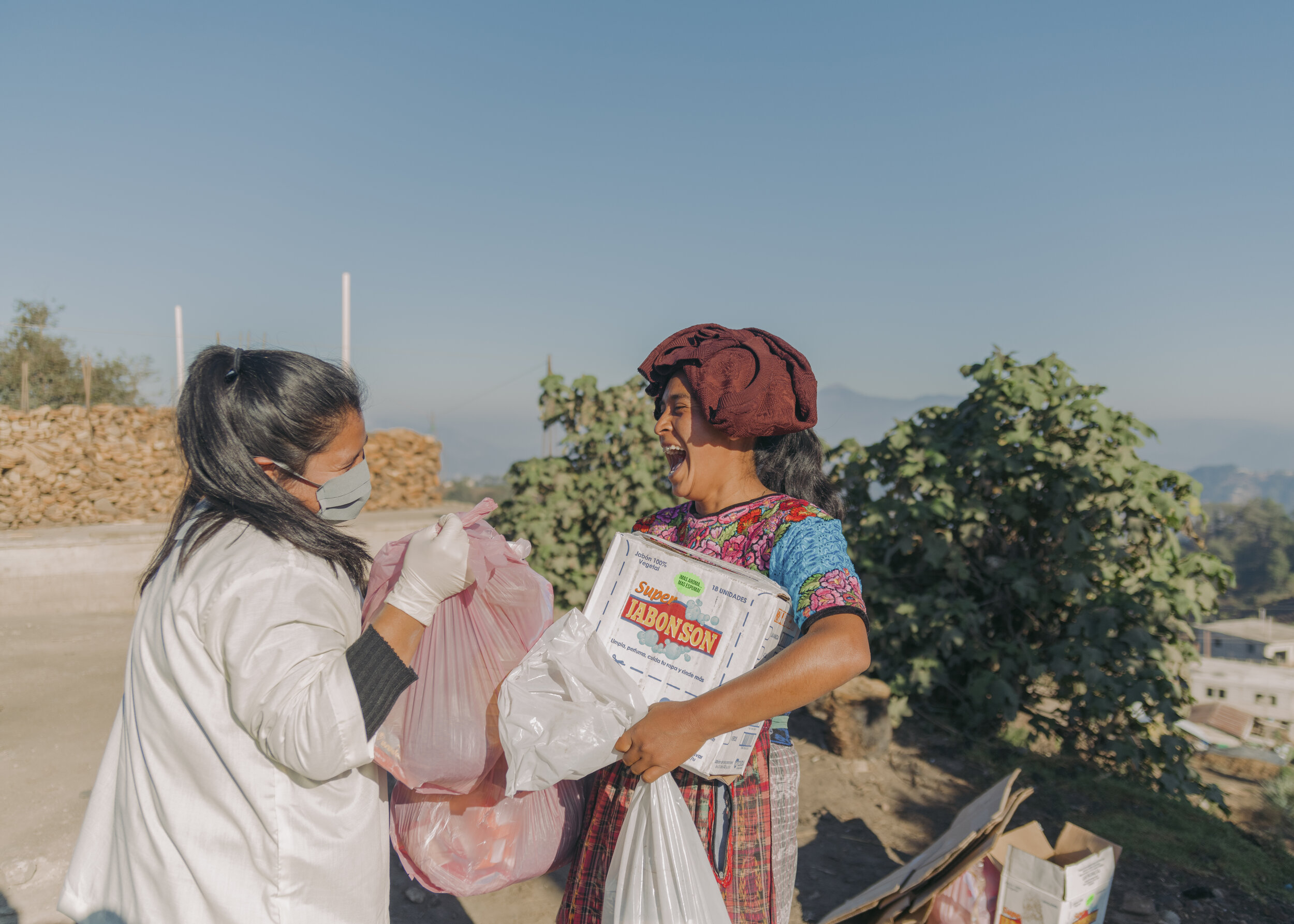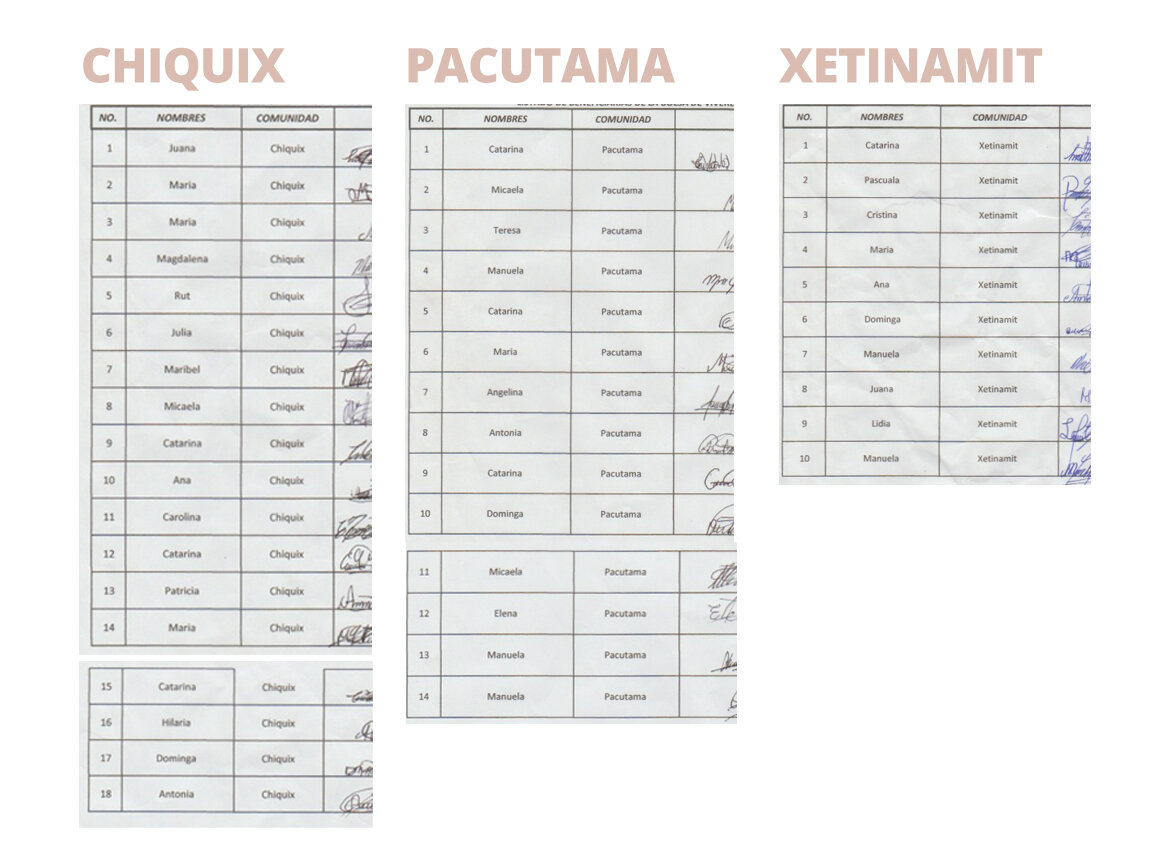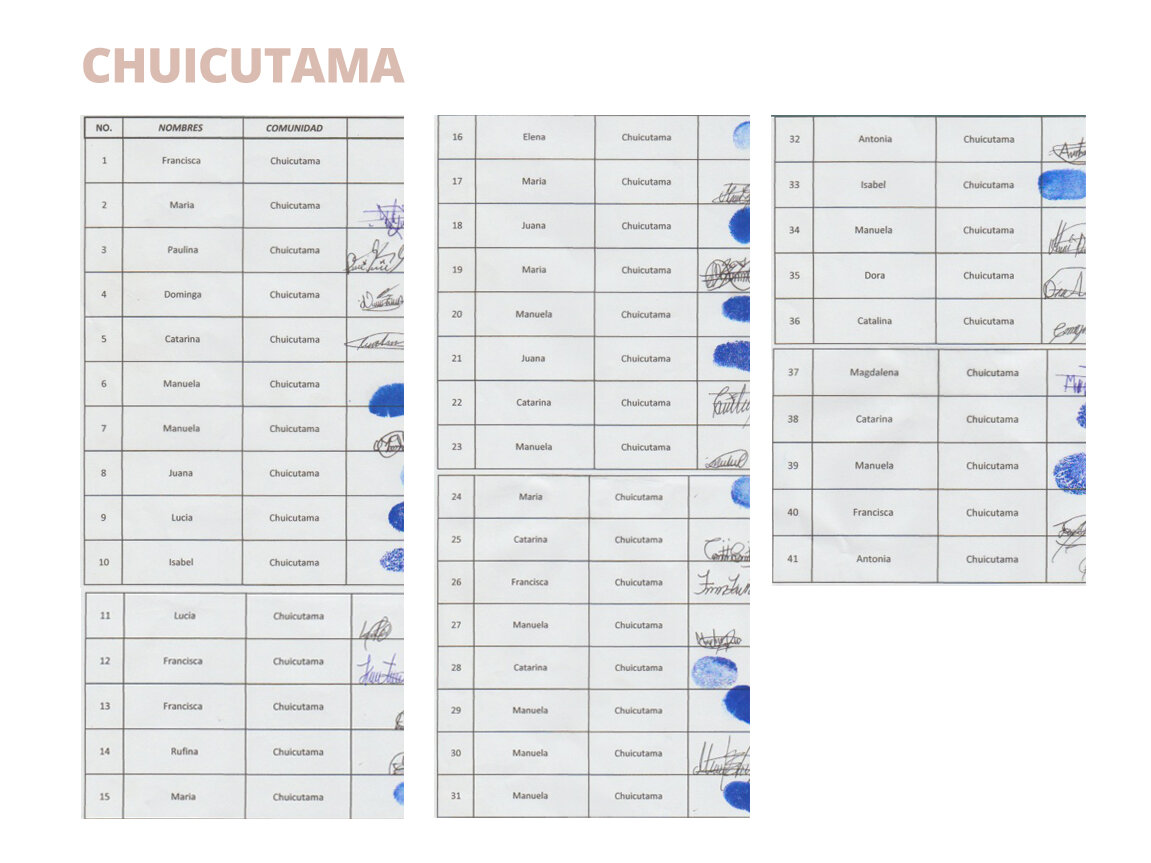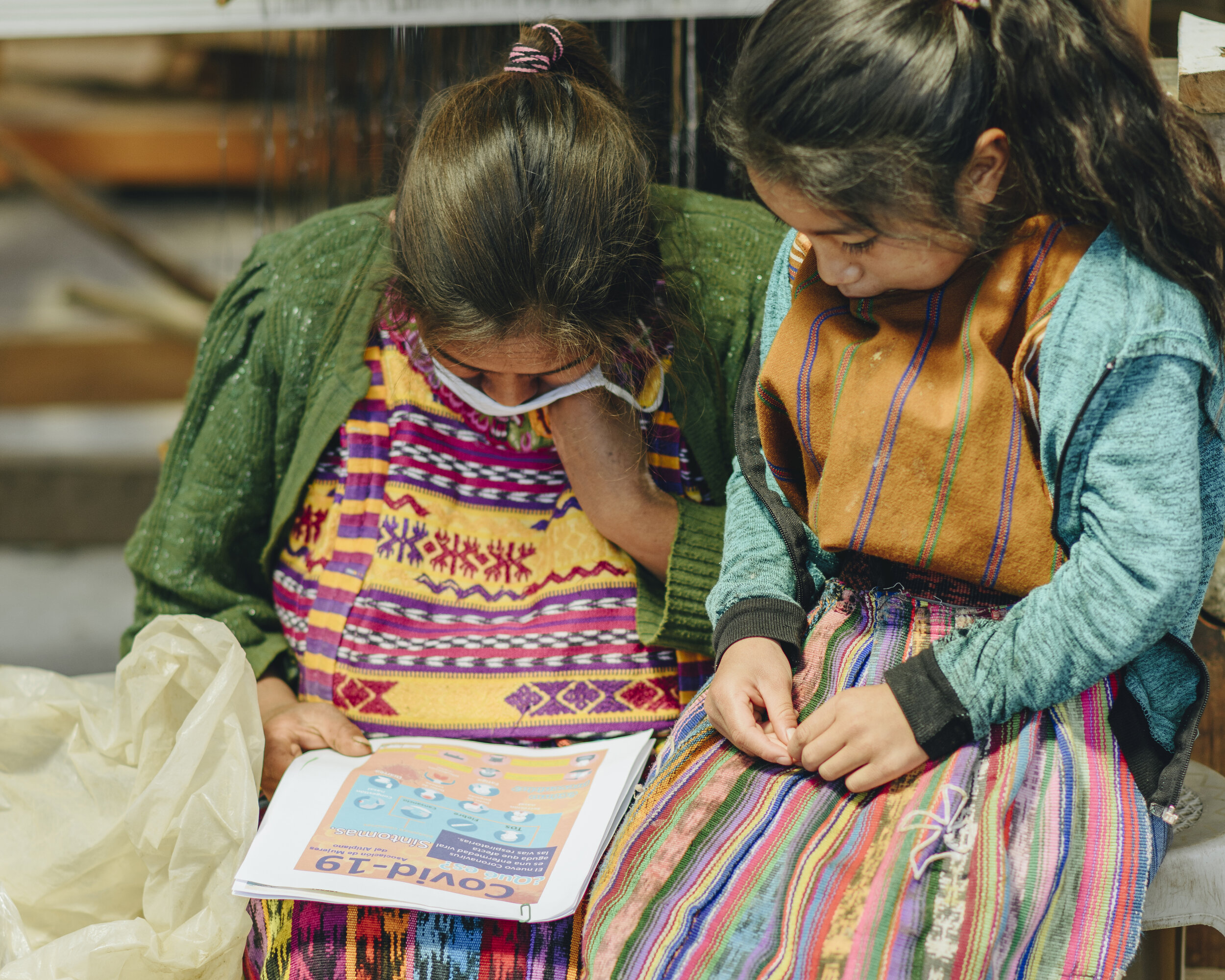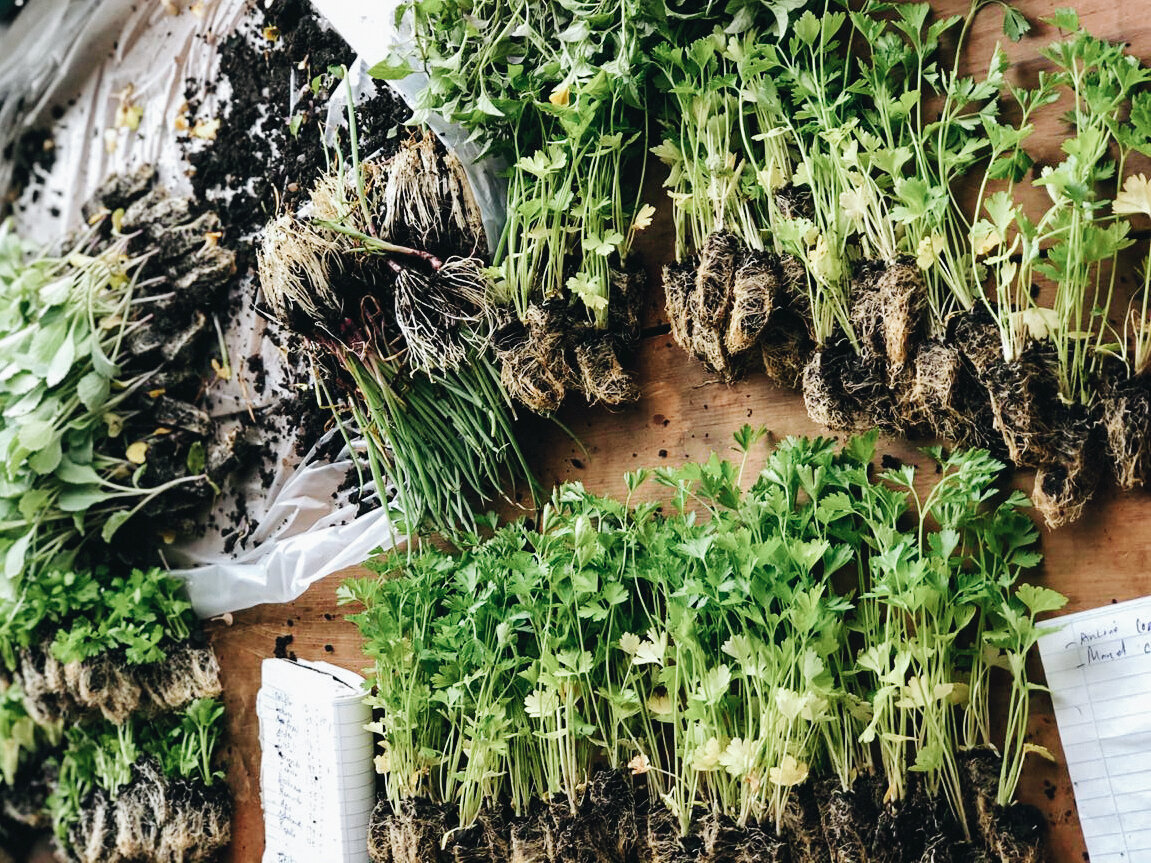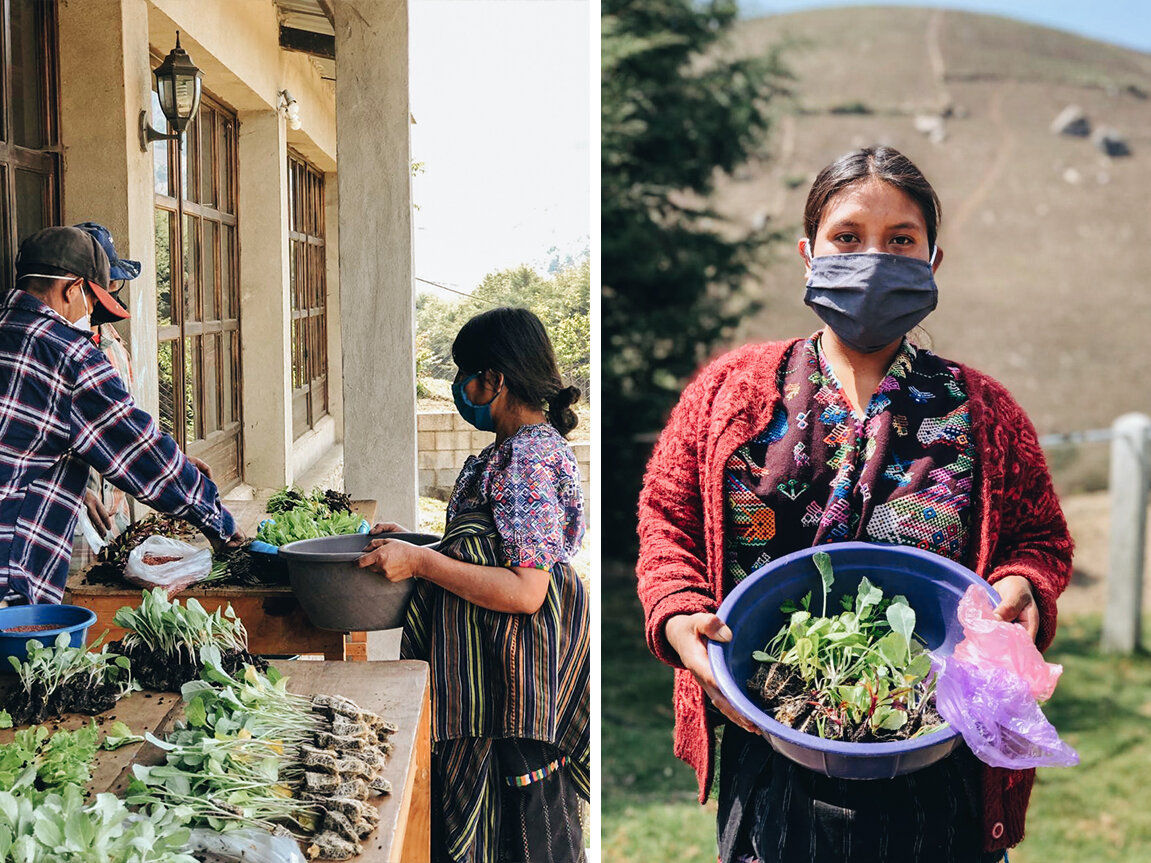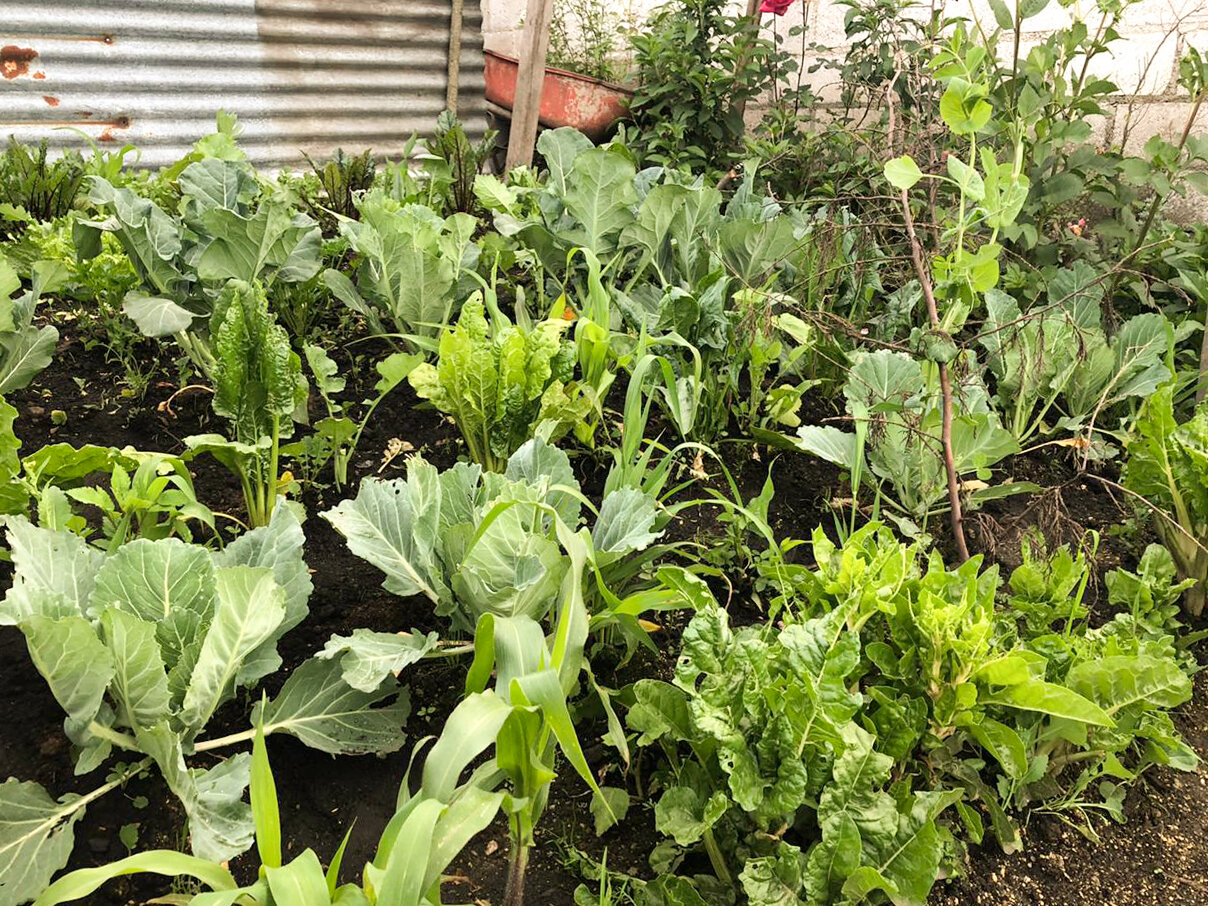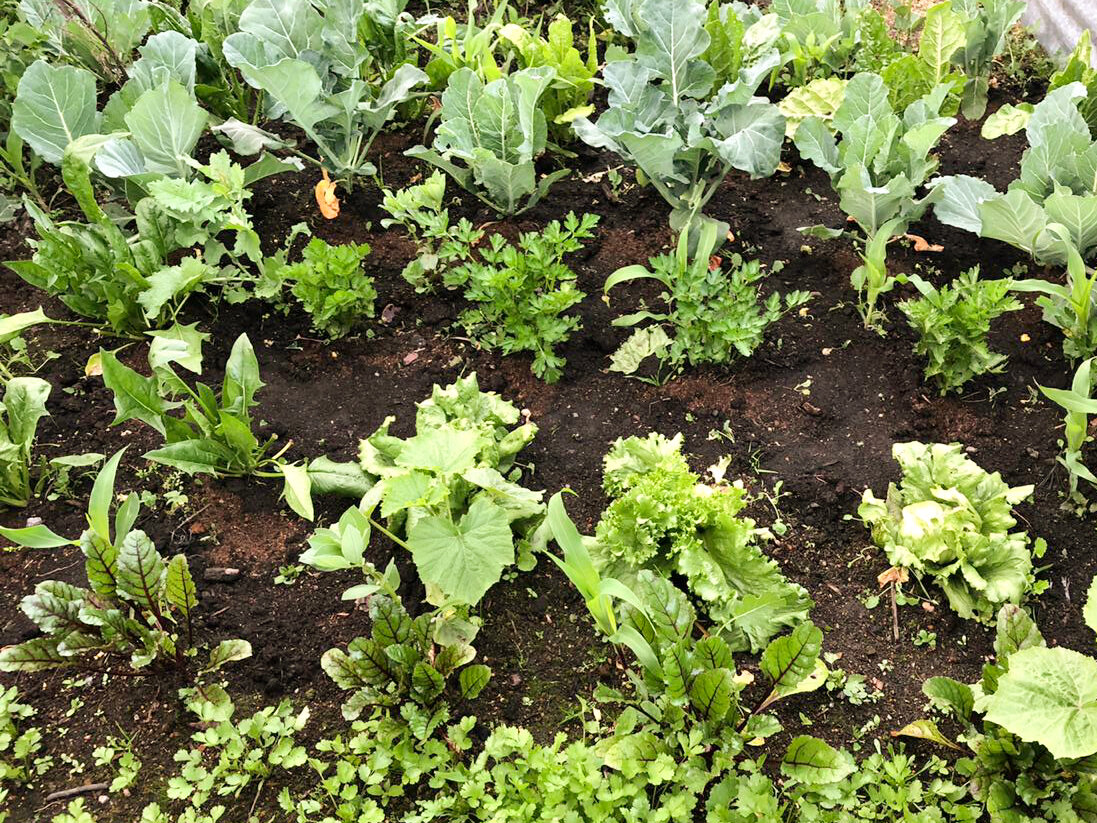Life Lately at PIXAN
Life at Pixan lately has been a bit unpredictable as we face the challenges associated with COVID-19, but we have kept busy and been encouraged by the continued support we've received!
At Pixan, we are used to making the most of whatever situation we face, and COVID-19 is no exception. Two of our weavers, Margarita and Vero, have been busy making colorful face masks that are for sale on our website. The masks use our beautiful hand-made fabrics and are available in both adult and children's sizes. These masks have been a great support to Margarita and Vero's families. Margarita's father recently told us how grateful he is for this new opportunity, and that it has been especially helpful to continue to buy food and other supplies during this otherwise uncertain time.
These masks will continue to be available online!
Food Delivery & Information Sharing
Along with our partner organizations, Highland Support Project and AMA, we have been working hard to support our communities during this challenging time. The strict curfew and transportation limitations in place have made it challenging for many families in rural areas to make trips into bigger towns to get food and other necessities. We have been working to deliver food and cleaning supplies right to families to combat this problem. We also have realized that many families are not receiving current and accurate information about the virus, due to both a general lack of technology and lack of news shared in indigenous languages. We are combatting this issue by both visiting communities in person and sharing voice messages in native languages to leaders in the community with technology access.
Family Gardens
Our food deliveries have been established as an immediate solution, but we are also kick-starting our family garden project that will aid in creating a more sustainable long-term food source. Many indigenous families lack both the education of and access to a nutritious and varied diet. Unfortunately, not unlike many other countries, what is cheapest and most readily available is processed food that only contributes to the high rates of chronic conditions that already plague indigenous communities.
Our family gardens project seeks to educate families on the power and benefit of a home-grown and varied diet. The gardens are also economically advantageous, by both providing an on-going food source and creating the opportunity for the trading of food products among other community members in the future. We are also utilizing no-till "lasagna" style gardens, an environmentally-friendly technique that will richen and revitalize the soil
Find more information about how you can support this project by clicking the button below!
Written by. Madison Sweitzer

